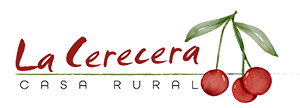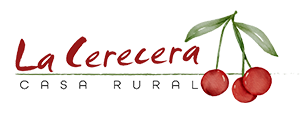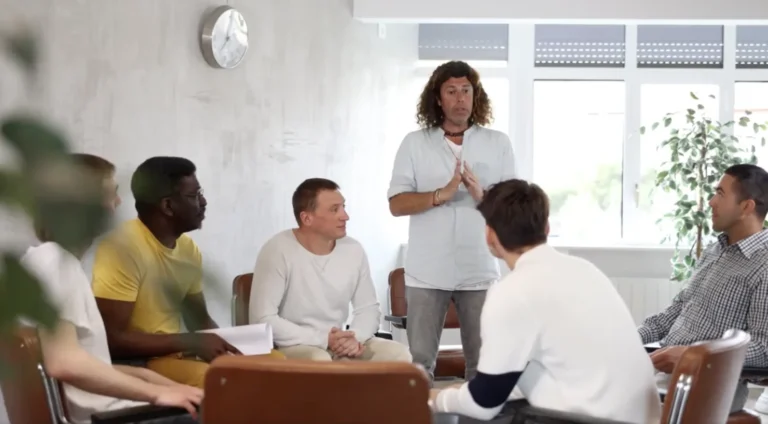
As a result, a lot of new therapists, gurus, international retreats, and clinics are opening up. There are a few concerns about ibogaine, including a possible link to potentially fatal cardiac arrhythmias. As a result, it’s been limited to observational trials so far with a focus on treating opioid addiction. That said, psychedelics have been linked to an increased risk of psychosis in people with psychotic disorders or a predisposition to them. At this stage, clinicians are still evaluating the effectiveness of their treatments, so exact dosing, number of treatments needed, and the approach to psychedelic therapy will vary depending on who is guiding you. Psilocybin, the main compound in magic mushrooms, has shown positive results in treating depression and anxiety in people living with terminal illnesses.
Press Play for Advice On Treating Emotional Pain
- Across substances and disorders, respondents report on the wide emotional scope of the experience, the increased access to a range of emotions, and the importance of the emotional content of their experiences.
- “This is a kind of standard assay to determine how anxious the animal will be and how much it will explore.” Researchers can assess anxiety levels based on time spent in each area.
- US law prohibits patents on products of nature, including human genes; abstract ideas, such as those expressed by mathematical formulas; and natural phenomena, including the laws of nature.
If you’re interested in participating in a psychedelic-assisted treatment in a clinical setting supported by an expert, a good place to start is the database of accredited therapists maintained by the Multidisciplinary Association for Psychedelic Studies. Otherwise, psychedelic substances are generally considered low risk, especially when used in a clinical setting. The final phase is the integration process, when the therapist and client work together to integrate meaning from the psychedelic experiences. LSD, a long lasting, potent psychedelic that’s considered to be the prototype for therapeutic psychedelics, has been shown to help with both alcohol use disorder and anxiety in people living with terminal illnesses. Multiple phase 2 clinical trials — which are done to discern whether a treatment works — suggest that MDMA can treat PTSD symptoms for up to 4 years.
The therapy process
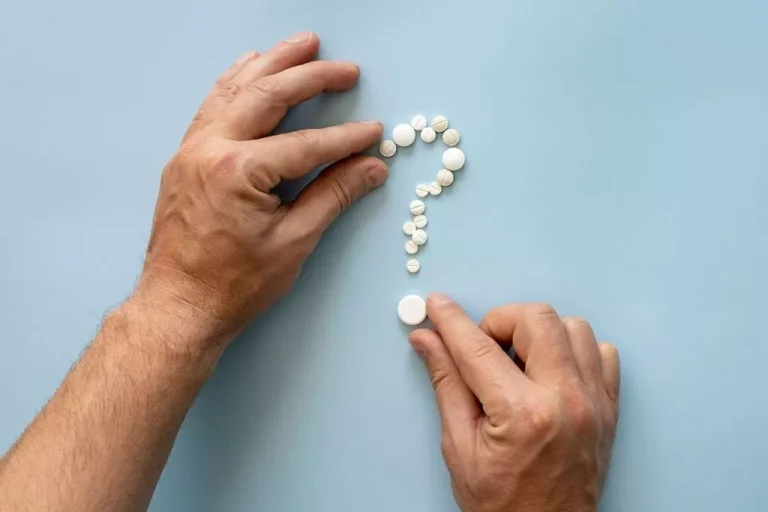
Remarkably, decreased drug, alcohol, and medication use were also reported in studies with MDMA, ayahuasca and psilocybin that did not deal directly with substance use [53, 80, 87]. In contrast with many other classes of psychoactive substances (ketamine being a possible exception [92, 93]), psychedelics do not lead to addiction or dependence [25, 94], and some respondents with SUDs remarked on these notable differences [79, 83]. In two of the studies that provided a single psilocybin session, several patients expressed the wish for additional sessions [82], and one study reported that several patients actively sought out extramedical psilocybin sessions for this reason [53].
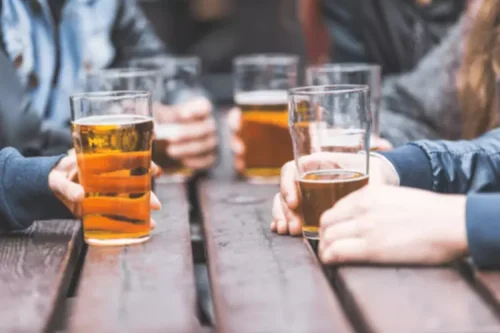
Mental health benefits

The drug typically induces feelings of “increased energy, pleasure, emotional warmth and distorted sensory and time perception,” according to the National Institute on Drug Abuse (NIDA). Michael Mithoefer, M.D., the senior medical director for Medical Affairs, Training and Supervision at the Multidisciplinary Association for Psychedelic Studies (MAPS), likens psychedelic therapy to applying a cast to a broken bone. Researchers recruited 15 volunteers to receive both psilocybin and a cognitive-behavioral therapy-based quit-smoking program. When I went to see Fayina Cohen for a past life regression, my biggest fear was that somehow I wouldn’t be able to ‘go there’, that my mind couldn’t let go and that I would imagine and make up what I would perceive in the session. She immediately calmed my fears and was able to bring me into a beautiful trance state. During this session I was able to connect to a past life that was so relevant to my present journey.
Uses and benefits
- These studies found strong reductions in both depression and anxiety symptoms, as well as improvements in quality of life and spiritual well-being, from psilocybin-assisted psychotherapy.
- They provide a reassuring presence even before the drug is administered, during the time it is active, and after the pharmacologic effects have worn off.
- In order to determine if psychedelic therapy is truly effective in the treatment of alcohol and substance use disorders, more research using randomized clinical trials is needed.
- It also promotes the release of oxytocin, stirring feelings of emotional openness, empathy, and connectedness.
The research, led by Dr. Elena Argento, Tashia Petker and Dr. Zach Walsh from UBCO’s Department of Psychology in the Irving K. Barber Faculty of Arts and Social Sciences, found that first-hand experience could enhance therapeutic outcomes and improve patient safety. Enhanced (inter)connectedness was reported across substances, both during sessions and afterwards, with respondents alluding to positive changes in friendships and improved relationships with family members [53, 78, 80]. “I mean besides the ayahuasca itself, besides the medicinal quality of you know, chemically what ayahuasca can do, I would say that (the most important therapeutic elements were) the trust, therapeutic trust in the medicine men and as well, the follow-up. I don’t know if I would ever recommend an ayahuasca ceremony without that therapeutic, the first one at least, without that therapeutic follow-up.” [87] [ayahuasca, eating disorder].
Psychedelics Research and Psilocybin Therapy
Enthusiasm for psychedelic treatments has spurred several movements promoting their decriminalization and legalization. The most notable of these is unfolding in Oregon, where in November 2020 voters approved a ballot initiative legalizing psilocybin and establishing a statewide system of psilocybin therapy clinics. Motivated by the high burden of mental illness and the urgent need for accessible treatments, Oregon decided to allow psychedelics to be administered by facilitators without mental health training, and for people to use psilocybin without a prescription. Generalizing from the success of clinical trials, Oregon has decided to massively expand access to psilocybin. They are apparently doing so without consideration for the role of thoughtfully designed protocols and highly trained mental health professionals in creating the success of those very clinical trials.
Standard psychedelic therapy
A classic psychedelic, similar to LSD, psilocybin and mescalin, was found to activate a cell type in the brain that silences other neighboring neurons, a result that provides insight into how such drugs reduce anxiety, according to a new study in mice and rats. David B. Yaden, PhD, is the Roland R. Griffiths Professor of Psychedelic Research at Johns Hopkins University School of Medicine. His research interests include characterizing the acute subjective effects of psychedelics, investigating their capacity to impact well-being and worldview, as well as investigating their benefits and risks. This question has arisen in other contexts, most notably in discussions around ongoing attempts to develop nonsubjective, or non-hallucinogenic, psychedelics – named as such for their lack of a characteristic “trip”.
The distortion of our subjective experience of self is a core part of the psychedelic experience, which also includes an increase in emotional empathy, the ability to respond to the mental state of others. People report greatly enhanced sociability, feel as though they have “taken off the mask they wear around others,” or that the personal “wall” that separates them from others has fallen. Because our ego separates us from others, ego dissolution causes people to feel much closer to others, whether they know them well or not. The Johns Hopkins Center for Psychedelic and Consciousness Research is leading the way in exploring innovative treatments using psilocybin. Psychedelics should only ever be used with the guidance of a mental health professional to ensure safety, legality, and maximum benefits. The first step to finding out if psychedelic-assisted therapy is right for you is to schedule a consultation with a psychiatrist.
- In 2006, a double-blind randomized controlled (DB-RC) study compared the acute and longer-term psychological effects of single high doses of psilocybin (30 mg) and methylphenidate (40 mg) in healthy volunteers.
- While the classical psychedelics each have subtle distinctions in their effects, they tend to induce changes in perception (e.g., illusions, distortions, amplifications, or hallucinations in multiple sensory modalities), increased cognitive flexibility, and intense emotions [11].
- One ibogaine study was conducted in silence [78, 79]; the third ibogaine study [86] and the ketamine study [84] did not report on this aspect.
- Robert A. Schoevers received a research grant from the Netherlands Organization Health Research and Development for a clinical study on oral esketamine, and is the co-investigator of a clinical study on psilocybin funded by Compass Pathways.
Psychedelics and Psychedelic-Assisted Psychotherapy
Studies on medicinal applications of psychedelics ceased entirely in the United States when the Controlled Substances Act was passed in 1970. LSD and many other psychedelics were placed into the most restrictive «Schedule I» category by the United States Drug Enforcement Administration. Schedule I compounds are claimed to possess «significant potential for abuse and dependence» and have «no recognized medicinal value»,[26] effectively rendering them illegal to use in the United States for all purposes. Despite objections are psychedelics addictive from the scientific community, authorized research into therapeutic applications of psychedelic drugs had been discontinued worldwide by the 1980s. At the federal level, most psychedelic drugs—with the exception of ketamine—are designated Schedule I drugs, meaning they are seen as having no accepted medical use and a high potential for abuse by the U.S. They are also illegal to produce, sell, possess or consume, although some states and cities are moving toward more accepting laws around certain psychedelics.
Schedule I controlled substances
We firmly believe that the future of psychedelic psychotherapies will involve a collaboration between patients, psychiatrists, and other mental health professionals. We also firmly believe that individualized risk–benefit assessments, performed by skilled clinicians, will be essential to maintaining the quality and integrity of psychedelic therapies in the future. Clinicians will also increasingly have to contend with what it means to “get better” after using psychedelic therapies.
